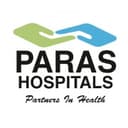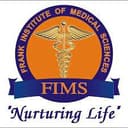Master of Science (MSc) in Nursing
OR
Prepared by Docthub Courses Team ∣
Last updated on 24 Feb 2025
Overview
M.Sc. Nursing, also known as Master of Science in Nursing, is a postgraduate degree program designed for individuals who have completed their B.Sc. in nursing from a recognized institute. This two-year program offers specialized knowledge in various branches of nursing, including ambulatory care nursing, cardiac nursing, cardiac intervention nursing, critical care nursing, emergency nursing, pediatric nursing, and more.
To be eligible for the M.Sc. Nursing program, students need to have successfully completed either a BSc Nursing or a Post-Basic BSc Nursing course. Additionally, they must have obtained a minimum aggregate of 50% marks in their undergraduate studies. The entire course curriculum is conducted in an offline mode, allowing students to engage in face-to-face interactions and practical training.
The M.Sc. Nursing program aims to cater to the field of Nursing and Applied Sciences. It provides students with advanced theoretical and practical knowledge, equipping them with the skills necessary to excel in their nursing careers. Throughout the course, students delve deeper into their chosen specialization, gaining expertise and insight into the specialized branches of nursing.

Table of Content
What is M.Sc. Nursing Course?
M.Sc. Nursing is a postgraduate program that spans over two years and focuses on providing both theoretical and practical knowledge necessary to become a licensed professional nurse. The aim of the M.Sc. Nursing program is to develop expertise in the field of nursing and applied sciences, enabling nurses to serve as consultants in clinical practice.
The program incorporates various teaching methods such as seminars, lectures, intensive laboratory work, practical training, and on-the-job training. These approaches ensure a comprehensive learning experience for students. Additionally, students are required to complete a research thesis in their final semester as part of the course curriculum.
M.Sc. Nursing Course Highlight
| Course Name | Masters of Science in Nursing |
| Commonly known as | M.Sc. in Nursing course |
| Course Level | Masters program |
| Course Type | Post-graduate |
| Course duration | 2 years |
| Minimum qualification | Relevant Bachelor’s Degree |
M.Sc. Nursing Eligibility Criteria
The eligibility criteria for M.Sc. Nursing is as follows:
- Educational Qualification:
Candidates must have completed B.Sc. Nursing/B.Sc. (Hons) Nursing/Post-Basic BSc Nursing from an institute recognized by the Indian Nursing Council or a recognized university, with a minimum of 55% marks.
For ST/SC candidates, there is a 5% relaxation in the minimum pass percentage required for admission.
- Registration:
Candidates should be registered nurses, and hold a valid nursing registration certificate.
- Work Experience:
A minimum of one year of work experience as a nurse is required either before or after completing Post Basic BSc Nursing.
- B.Sc. Degree:
Candidates should have obtained their B.Sc. (Bachelor of Science) degree in Nursing or Post Basic Nursing.
M.Sc. Nursing Course Duration
The duration of the M.Sc. Nursing is typically 2 years. The program is designed to be completed within this timeframe, providing students with advanced knowledge and skills in the field of nursing.
During these 2 years, students engage in various coursework, practical training, research projects, and clinical experiences to enhance their expertise and prepare them for professional roles in nursing.
Average Fees
The average fee for M.Sc. Nursing can vary depending on whether it is a government college or a private college. Here is an approximate fee range for M.Sc. Nursing:
Government Colleges: The average fee in government colleges ranges from INR 1,500 to INR 20,000. Government colleges often have lower fees compared to private colleges, as they receive funding from the government.
Private Colleges: The average fee in private colleges typically ranges from INR 80,000 to INR 130,000. Private colleges generally have higher fees due to their independent funding and infrastructure expenses.
It's important to note that these fee ranges are approximate and can vary among different colleges and universities. Additionally, fees may change over time, so it is advisable to check with the specific colleges of interest for the most accurate and up-to-date fee information.
Who should do M.Sc. Nursing?
- Passionate about Patient Care: M.Sc. Nursing is an ideal choice for individuals who have a genuine passion for helping people and are dedicated to providing high-quality care to patients. If you find fulfillment in making a positive impact on the lives of others, M.Sc. Nursing can be a suitable path for you.
- Desire for Specialized Care: This program is designed for candidates who aspire to deliver specialized care to patients. Nurses with M.Sc. Nursing degrees possess advanced knowledge and skills that enable them to provide comprehensive and specialized healthcare services.
- Aptitude for Decision-Making: M.Sc. Nursing prepares nurses to take on decision-making responsibilities. If you have the ability to make critical decisions in patient care, work collaboratively with doctors, and effectively handle the responsibility that comes with it, then M.Sc. Nursing is a suitable choice for you.
- Interest in Advancing Professional Growth: Pursuing M.Sc. Nursing offers opportunities for professional growth and advancement. It opens up positions of increasing responsibility, ensuring a rewarding and fulfilling career in the nursing field. Additionally, it also provides eligibility for further specializations such as M.Phil and Ph.D., allowing you to delve deeper into the nursing profession.
Why pursue an M.Sc. Nursing?
- In-demand Field: M.Sc. Nursing is currently in high demand, especially due to the ongoing Covid-19 pandemic. This creates excellent job prospects and opportunities for M.Sc. Nursing graduates.
- Diverse Career Opportunities: Graduates of M.Sc. Nurses can pursue various rewarding careers in the healthcare industry. They can work as registered nurses, nursing supervisors, nurse educators, paramedic nurses, clinical nurse managers, and more. The field offers positions of significant responsibility and authority.
- Higher Salary Potential: M.Sc. Nursing graduates can expect to earn a good living in the healthcare sector. The degree opens doors to well-paying job roles, ensuring financial stability and growth.
- Pathway to Advanced Education: Pursuing M.Sc. Nursing provides a pathway to advanced degrees such as M.Phil. and Ph.D. This allows individuals to delve deeper into nursing research and contribute to the development of the field.
- Versatile Practice Settings: M.Sc. Nursing equips individuals to practice nursing in various settings. Graduates can work in hospitals, nursing homes, healthcare centers, educational institutes, and even military hospitals. The versatility of the field allows for diverse career options.
- Practical Learning Opportunities: M.Sc. Nursing programs often include practical training where students gain hands-on experience in real healthcare settings. This enhances their skills and prepares them for the challenges of the nursing profession.
- Assisting Doctors in Patient Care: M.Sc. Nursing graduates play a vital role in assisting doctors with patient care. They contribute to decision-making processes and provide specialized care, making a significant impact on the well-being of patients.
- Personal Fulfillment: Pursuing M.Sc. Nursing allows individuals to make a positive impact on the lives of others. It is a rewarding and fulfilling career choice for those who have a genuine desire to help people and improve healthcare outcomes.
M.Sc. Nursing Admission Process
M.Sc. Nursing admissions in India follow two main pathways: merit-based admission and entrance exam-based admission. Here is a breakdown of the admission process:
Merit-based Admission
- Some colleges in India offer direct admissions based on the merit obtained by students in B.Sc. Nursing or its equivalent from a recognized board.
- Candidates who have obtained good marks in their undergraduate nursing program are eligible for direct admissions.
- The selection is made purely based on merit, without the need for a separate entrance exam.
- Shortlisted candidates are directly invited for the counseling round, where they can secure their admission by completing the necessary formalities.
Entrance Exam-based Admission
- Many institutes and universities conduct entrance examinations for M.Sc. Nursing admissions, such as AIIMS PG Exam, MET, DSAT, and others.
- Candidates are required to apply for these entrance exams and appear for the respective exams.
- The selection process includes a written examination to assess the candidates' knowledge and aptitude in the field of nursing.
- Based on the performance in the entrance exam, candidates are shortlisted for further rounds, which may include group discussions (GD) and personal interviews (PI).
- Shortlisted candidates are then called for the counseling round, where they can choose their desired college and secure admission by fulfilling the required formalities.
M.Sc. Nursing Entrance Exam
| Entrance Exam | Full Name | Conducted By |
| AIIMS Nursing | All India Institute of Medical Sciences Nursing | All India Institute of Medical Sciences (AIIMS) |
| INI CET | Institution of National Importance Combined Entrance Examination | All India Institute of Medical Sciences (AIIMS) |
| MET | Manipal Entrance Test | Manipal Academy of Higher Education |
| WBPGNAT | West Bengal Post Graduate Nursing Admission Test | West Bengal Joint Entrance Examinations Board |
| DSAT | Dayananda Sagar Admission Test | Dayananda Sagar University |
| CMC Vellore MSc Nursing Exam | Christian Medical College Vellore MSc Nursing Exam | Christian Medical College, Vellore |
| PGIMER MSc Nursing Entrance Exam | Postgraduate Institute of Medical Education and Research MSc Nursing Entrance Exam | Postgraduate Institute of Medical Education and Research (PGIMER) |
| RAKCON Entrance Exam | Rajkumari Amrit Kaur College of Nursing Entrance Exam | Rajkumari Amrit Kaur College of Nursing |
| HPU MSc Nursing Exam | Himachal Pradesh University MSc Nursing Exam | Himachal Pradesh University |
| Bihar MSc Exam | Bihar MSc Nursing Exam | Bihar Combined Entrance Competitive Examination Board |
| APU MSc Nursing Exam | Acharya Nagarjuna University University MSc Nursing Exam | Acharya Nagarjuna University |
| Telangana MSc Nursing Exam | Telangana MSc Nursing Exam | Kaloji Narayana Rao University of Health Sciences |
M.Sc. Nursing Course Syllabus
The M.Sc. Nursing course has a duration of two years. To get a detailed understanding of the syllabus for each year, candidates can refer to the table provided below.
| Course Content | Included Topics |
| 1st Year | |
Advance Nursing and Allied Subjects | Nursing as a Profession Genetics Epidemiology Economic and Political Aspects of Health Care Delivery Philosophy and Theories of Nursing Bio-Psycho Pathology Nursing Process Approach Scope of Nursing Practice Psychological Aspects and Human Relations Computer Applications for Nursing Practice and Patient Care Delivery System Basis of Current Nursing Practices Trends in Nursing |
Nursing Education | Teaching-Learning Process Meaning of Education Development and Trends in Nursing Education Instructional Media & A. V. Aids Continuing Education in Nursing Overview of nursing education programs, in India Curriculum Development Administration of nursing curriculum Teacher education for the nursing profession Guidance and counseling Development of standards Accreditation in Nursing Education Programmes Administration of nursing curriculum |
Research and Statistics | Research Designs Research Approaches Sampling Analysis and interpretation of data Theoretical Context Organization and presentation of data Reporting and utilizing results Use of statistical methods in psychology and education Measures of variability Measures of central tendency |
Clinical Nursing I | Causes, pathophysiology, investigations, clinical features and management of problems of skin & sensory organs Causes, pathophysiology, investigations, clinical features, and management of problems of the gastrointestinal system Management of problems of the endocrine system Causes, pathophysiology, investigations, clinical features, and management of problems of the urogenital system Problems of the brain and neurological system Management of problems in the cardiorespiratory system Causes, pathophysiology, investigations, clinical features, and management of problems of muscular-skeletal system |
| 2nd Year | |
Nursing Management | Introduction to management Legal & ethical issues in nursing management Material management Management information system Roles and functions of the nurse manager in financial management Roles and functions of the nurse manager in controlling Roles and functions of the nurse manager in directing Organizational behavior Organization of nursing and health delivery system Roles and functions of the nurse manager in planning |
Clinical Nursing II | Management of patients with vascular problems Assessment of normal and abnormal cardiac function Review of anatomy and physiology of the cardiovascular system Preventive & Control measures of cardiothoracic & vascular disorder Psychosocial issues in cardiothoracic & vascular disorders Planning & organization of critical care units Advance nursing procedures Geriatric Nursing Clinical features and management of problems of infectious conditions Immune system compromising conditions Blood and blood-forming organs |
Practical | Thesis Viva Clinical Nursing Nursing Education Management |
Top M.Sc. Nursing Colleges
Here are some of the top M.Sc. Nursing colleges in India:
Top Government M.Sc. Nursing Colleges
| College Name | Approximate Average Fees |
| AIIMS, New Delhi | ₹ 1,000 - ₹ 2,000 |
| PGIMER, Chandigarh | ₹ 13,000 - ₹ 14,000 |
| Christian Medical College, Vellore | ₹ 35,000 - ₹ 40,000 |
| JIPMER, Pondicherry | ₹ 1,500 - ₹ 3,000 |
| Dr. D.Y. Patil Vidyapeeth, Pune | ₹ 1,25,000 - ₹ 1,35,000 |
| Saveetha Medical College, Chennai | ₹ 90,000 - ₹ 1,50,000 |
Top Private M.Sc. Nursing Colleges
| College Name | Approximate Average Fees |
| Sri Ramachandra Institute of Higher Education and Research | ₹ 90,000 - ₹ 1,20,000 |
| Manipal Academy of Higher Education, Manipal | ₹ 1,00,000 - ₹ 1,30,000 |
| Jamia Hamdard University, New Delhi | ₹ 1,80,000 - ₹ 1,90,000 |
| Christian Medical College, Ludhiana | ₹ 2,00,000 - ₹ 2,50,000 |
| SRM Institute of Science and Technology, Chennai | ₹ 85,000 - ₹ 95,000 |
| KS Hegde Medical College, Mangalore | ₹ 1,00,000 - ₹ 1,10,000 |
| Bharati Vidyapeeth Deemed University, Pune | ₹ 90,000 - ₹ 1, 50,000 |
| RR Nursing Institutions, Bangalore | ₹ 1,00,000 - ₹ 2,00,000 |
M.Sc. Nursing Scope
M.Sc. Nursing offers a promising future scope for students in the healthcare sector. Here are some reasons why M.Sc. Nursing has a good future scope for students:
Growing Demand for Specialized Nurses: The healthcare industry is witnessing an increasing demand for highly skilled and specialized nurses. With an M.Sc. Nursing degree, students can tap into a wide range of career opportunities in specialized areas such as critical care, oncology, pediatric care, psychiatric nursing, and more. The demand for these specialized nurses is expected to continue growing in the future.
Advanced Practice Roles: M.Sc. Nursing graduates have the opportunity to take up advanced practice roles such as nurse practitioners, clinical nurse specialists, nurse anesthetists, and nurse educators. These roles involve providing advanced patient care, making clinical decisions, conducting research, and contributing to the development of nursing practice.
Leadership and Management Positions: With their advanced education and specialized knowledge, M.Sc. Nursing graduates can pursue leadership and management positions in healthcare organizations. They can take on roles such as nursing administrators, nurse managers, quality improvement coordinators, and healthcare consultants. These positions involve overseeing nursing departments, managing resources, and ensuring the delivery of high-quality patient care.
Research and Academia: M.Sc. Nursing opens up opportunities for students to engage in research and contribute to the advancement of nursing knowledge. Graduates can pursue research positions in healthcare institutions, universities, or research organizations. They can also enter academia as nursing faculty members, sharing their expertise and mentoring future nurses.
Global Career Options: The skills and qualifications gained through an M.Sc. Nursing degree can provide opportunities for global career options. Graduates can explore employment in international healthcare organizations, participate in collaborative research projects, or pursue further studies abroad.
Continuing Education and Specialization: M.Sc. Nursing serves as a foundation for further education and specialization. Graduates can pursue higher degrees such as M.Phil. and Ph.D. in nursing, allowing them to delve deeper into research, academia, or specialized practice areas.
Overall, M.Sc. Nursing offers a wide range of career opportunities, including specialized roles, leadership positions, research and academia, and global prospects. With the healthcare industry's continuous growth and evolving needs, M.Sc. Nursing graduates can look forward to a promising future in the healthcare sector.
Career Opportunities after M.Sc. Nursing
After completing M.Sc. Nursing, graduates have several career opportunities in the healthcare sector. Here are some potential career paths:
Nursing Instructor: A nursing instructor is responsible for educating and training aspiring nurses, ensuring they meet the necessary competency standards. They provide instruction in various nursing subjects, conduct practical training sessions, and assess students' progress.
Staff Nurse: A staff nurse plays a vital role in patient care and recovery within a medical unit. They assess patients' health, administer medications, monitor vital signs, assist with procedures, and collaborate with the healthcare team to develop patient care plans.
Nursing Supervisor: A nursing supervisor oversees the functioning of the nursing staff, ensuring adherence to protocols and policies. They coordinate and delegate nursing duties, evaluate staff performance, and address any issues or concerns within the nursing department.
Nurse Assistant: A nurse assistant provides support to the nursing staff in caring for patients. They assist with activities of daily living, monitor vital signs, and report any changes to the nursing team.
ICU Nurse: An ICU nurse specializes in caring for critically ill patients in the Intensive Care Unit. They closely monitor patients' condition, administer medications, operate life support equipment, and collaborate with the multidisciplinary team for optimal patient outcomes.
Clinical Nurse Manager: A clinical nurse manager oversees the operations of a nursing unit, managing staff, allocating resources, and ensuring compliance with regulations. They develop policies, maintain effective communication, and facilitate seamless patient care.
These career opportunities after completing M.Sc. Nursing offers diverse roles that contribute to high-quality patient care, healthcare facility management, and the overall promotion of health and well-being.
M.Sc. Nursing Salary Prospect
| Years of Experience | Average Salary (per annum) |
| Less than 1 year | ₹ 2,00,000 - ₹ 2,50,000 |
| 4 years | ₹ 2,30,000 - 2,55,000 |
| 5+ years | ₹ 4,00,000 - ₹ 5,00,000 |
Explore colleges for this course
Quick Go Links

Explore this course by location..
by States
by Cities
Rajkot
Chhindwara
Agartala
Bambolim
Thiruvananthapuram
Jhajjar
Raigarh
Guntur
Azamgarh
Shimla
Srinagar
Bengaluru
Hoshiarpur
Rajamahendravaram
Kakinada
Dehradun
Ranchi
Silvassa
Patna
Lucknow
Ernakulam
Jhalawar
Marthandam
Kurnool
Visakhapatnam
Kannur
Jabalpur
Cuttack
Surat
Bhopal
Aurangabad
Nadiad
Neyyoor
Guwahati
Jalgaon
Mysore
Chennai
Noida
Varanasi
Dhamtari
Raipur
Nellore
Coimbatore
Rohtak
North Delhi
Gandhinagar
Bilaspur
Bhilai
Dewas
Kanpur
Ahmedabad
New Delhi
East Godavari
Bidar
Indore
Bareilly
Hyderabad
Morena
Rupnagar
Navsari
Rourkela
Dharmapuri
Mahbubnagar
Bhubaneswar
Jalandhar
Rajahmundry
Nagpur
Kalyani
Haridwar
Gauribidanur
Amreli
Sahaswan
Chitradurga
Kashipur
Shahdol
Jammu
Siliguri
Durg
Panchgani
Vadodara
Namakkal
Chandauli
Gorakhpur
Rajnandgaon
Udaipur
Dahegam
Calicut
Ratnagiri
Nala Sopara
Related Job Roles
Related Job Vacancies
View All 211 Jobs

FAQS
What does MSc Nursing do?
MSc Nursing is a postgraduate degree program that provides advanced knowledge and skills in nursing practice, research, administration, and specialized areas of nursing, preparing individuals for leadership roles in healthcare.
Which field is best for MSc Nursing?
The best field for MSc Nursing varies based on individual interests and career goals, with options including Nurse Practitioner, Nurse Educator, Nurse Administrator, and Nurse Researcher.
Which is better BSc Nursing or MSc Nursing?
Comparing BSc Nursing and MSc Nursing depends on career aspirations and goals, as BSc Nursing provides a foundation in advanced knowledge, specialization opportunities, and potential for leadership roles in the nursing field.
What is the salary of MSc nurse in India?
The average salary of an M.Sc. nurse in India is around 3 lakhs.
Is MSc Nursing a good career?
Yes, pursuing a career in MSc Nursing can be highly rewarding as it offers opportunities for advanced practice, specialization, research, leadership positions, and higher earning potential in the nursing profession.
Related Course titles

Qualifications
BSc Nursing
Related Specialty
General Nursing






